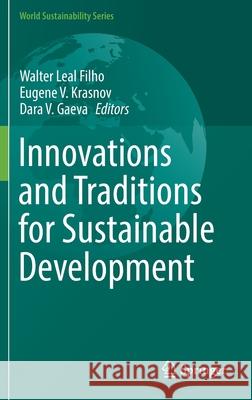Innovations and Traditions for Sustainable Development » książka
topmenu
Innovations and Traditions for Sustainable Development
ISBN-13: 9783030788247 / Angielski / Twarda / 2021 / 470 str.
Innovations and Traditions for Sustainable Development
ISBN-13: 9783030788247 / Angielski / Twarda / 2021 / 470 str.
cena 644,07
(netto: 613,40 VAT: 5%)
Najniższa cena z 30 dni: 616,85
(netto: 613,40 VAT: 5%)
Najniższa cena z 30 dni: 616,85
Termin realizacji zamówienia:
ok. 16-18 dni roboczych.
ok. 16-18 dni roboczych.
Darmowa dostawa!
Kategorie BISAC:
Wydawca:
Springer
Seria wydawnicza:
Język:
Angielski
ISBN-13:
9783030788247
Rok wydania:
2021
Wydanie:
2021
Numer serii:
000763600
Ilość stron:
470
Waga:
0.88 kg
Wymiary:
23.39 x 15.6 x 2.87
Oprawa:
Twarda
Wolumenów:
01
Dodatkowe informacje:
Wydanie ilustrowane











